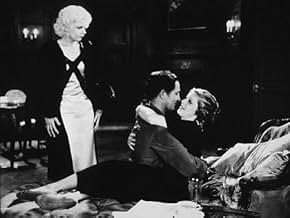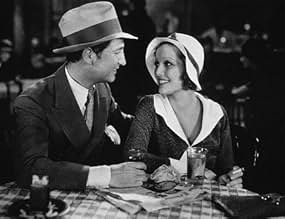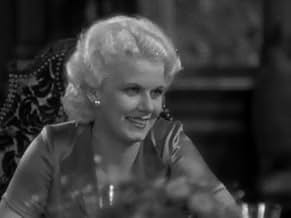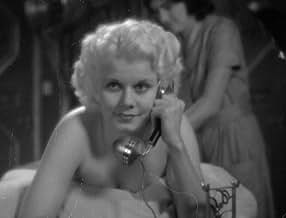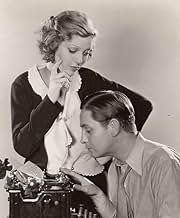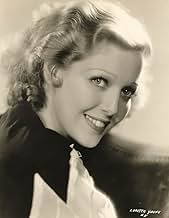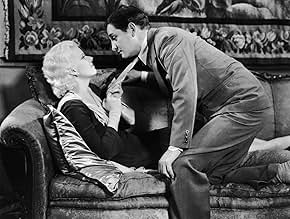Un journaliste est sollicité par une riche famille pour redorer son image, ternie par la presse à scandale. Il accepte la mission et tombe amoureux de la fille de ses employés. Mais, il s'ad... Tout lireUn journaliste est sollicité par une riche famille pour redorer son image, ternie par la presse à scandale. Il accepte la mission et tombe amoureux de la fille de ses employés. Mais, il s'adapte mal au mode de vie de la "haute société".Un journaliste est sollicité par une riche famille pour redorer son image, ternie par la presse à scandale. Il accepte la mission et tombe amoureux de la fille de ses employés. Mais, il s'adapte mal au mode de vie de la "haute société".
- Réalisation
- Scénario
- Casting principal
- Récompenses
- 2 victoires au total
- Michael Schuyler
- (as Donald Dillaway)
- Dawson - The Valet
- (as Claude Allister)
- Butler
- (non crédité)
- Reporter
- (non crédité)
- Hank - A Reporter
- (non crédité)
- Speakeasy Proprietor
- (non crédité)
- Reporter
- (non crédité)
- Ann's Beau - The Round-the-World Flyer
- (non crédité)
- Party Guest
- (non crédité)
- Reporter
- (non crédité)
Avis à la une
This wonderful Frank Capra comedy must have appealed greatly to the sentiments of the 1931 audience at the very depths of the Depression. The Schuylers (and their idiot lawyer Dexter Grayson) were everything that people loved to hate--snooty, superior, stupid, wholly undeserving of their vast riches. They are mocked ruthlessly, while Stew Smith and Gallagher, as worthy representatives of the working class, are portrayed with understanding and compassion. Stew briefly embraces the idle life of the super-rich (even to wearing garters), but, of course, this doesn't last long.
This is more than just a film for Frank Capra fans--it's a glorious spoof of the old-time newspaper business and a tasty bit of social history.
Williams proves himself to be a winning and engaging comedian in this very funny Frank Capra film about a reporter (Williams) who marries a society dame (Jean Harlow) only to realize that his true love is for the female co-worker (Loretta Young) who's been by his side the whole time. Never mind that Young is one hundred times more feminine and prettier than Harlow -- I just chalk it up to the theory that Harlow had a certain look that was very much in vogue in the 1930s and that made her extremely attractive to people.
I don't think Harlow is at all attractive, but I do see her appeal, and I didn't find her performance to be as bad in this film as the history books have claimed. It's true that the casting should have been reversed, and Young should have played the society belle with Harlow as the working-class girl next door. But never mind. She equips herself pretty well with the material given her, and she manages to be believable in the role.
But in any case, it's neither of the women you'll remember from this movie. It's Williams and his absolutely fantastic way with a funny line. He died of appendicitis at the age of 37, and it's clear that 30s movie audiences lost a potentially major star when they lost him.
Grade: A-
The movie itself, though hard to separate from Williams's domination of it, stands up fairly well on its own. There are some imaginative camera movements and setups and intelligent, witty dialogue laced with fizzy Depression-era argot. The story is not very convincing but you suspend disbelief because of the way the actors, dialogue and cinematography bring it to life. The pace is leisurely, sometimes a bit too much so, with many minutes taken up in gentle, playful, ultra-naturalistic banter between Williams and his co-stars. I can't think of another film from that period that detoured so often into that type of throwaway conversational interlude.
Jean Harlow as the heiress and Loretta Young as a newspaper columnist are not ideally cast. Their roles should have been reversed, but it doesn't really matter because both actresses do well. Harlow, who by this time had had relatively little experience in front of a camera, seems right at home about 90% of the time. And it's hard to believe that Loretta Young was only 18 when she made this! But she had already been a veteran of several years standing as a film actress.
Le saviez-vous
- AnecdotesIn a 2008 interview, actor Christopher Plummer called Williams "...one of the most realistic comedians the screen had. He made Cary Grant look like he was overacting... To watch Robert Williams act was like seeing a comic using the Method, long before the Method became famous with Marlon [Brando] (Marlon Brando) and Monty [Clift] (Montgomery Clift)."
- GaffesWhen they are looking at the front page of "The Tribune Paper", in the headlines, the word "okay" is misspelled. It shows "It's okey with me."
The spelling of "OK" was not standardized for a long time. Writer Dashiell Hammett among others spelled it "okeh" and "oke",
- Citations
Dexter Grayson: Where were you yesterday?
Anne Schuyler: Oh, Stew and I went for a long ride. Dexter, is there any finishing school we could send him to?
Dexter Grayson: Yes - Sing Sing!
- ConnexionsEdited into 365 days, also known as a Year (2019)
Meilleurs choix
- How long is Platinum Blonde?Alimenté par Alexa
Détails
Box-office
- Budget
- 600 000 £GB (estimé)
- Durée1 heure 29 minutes
- Couleur
Contribuer à cette page


